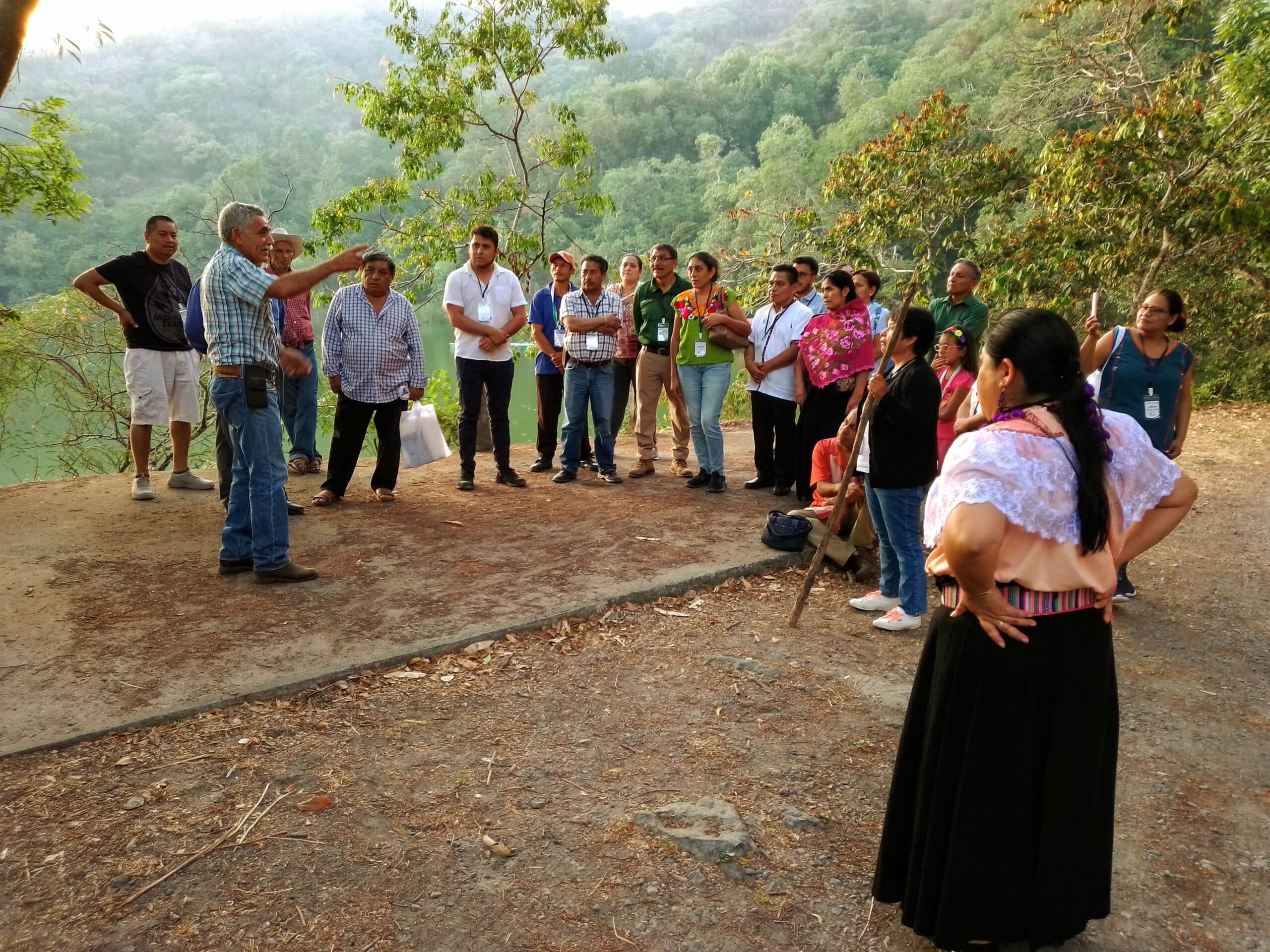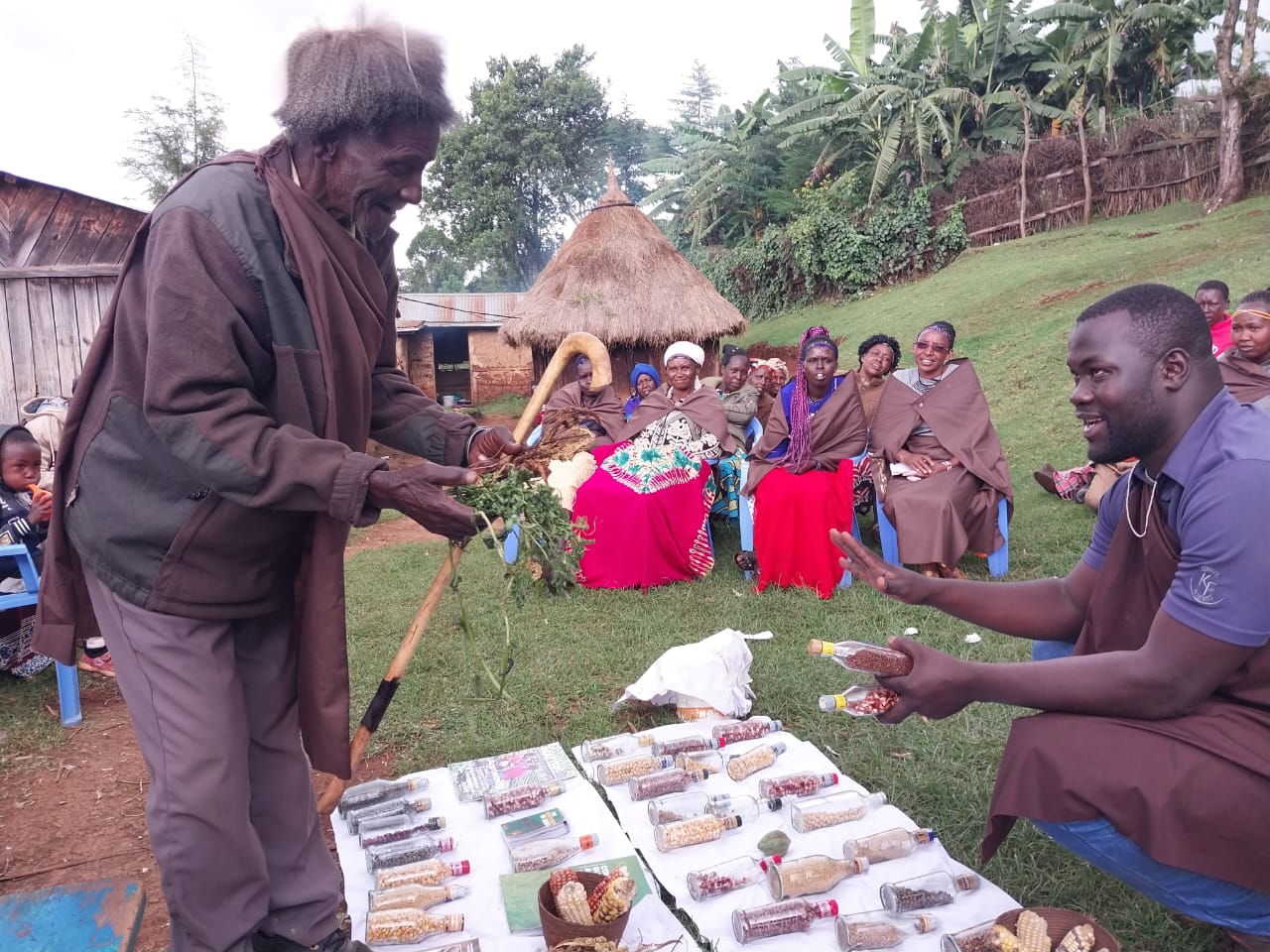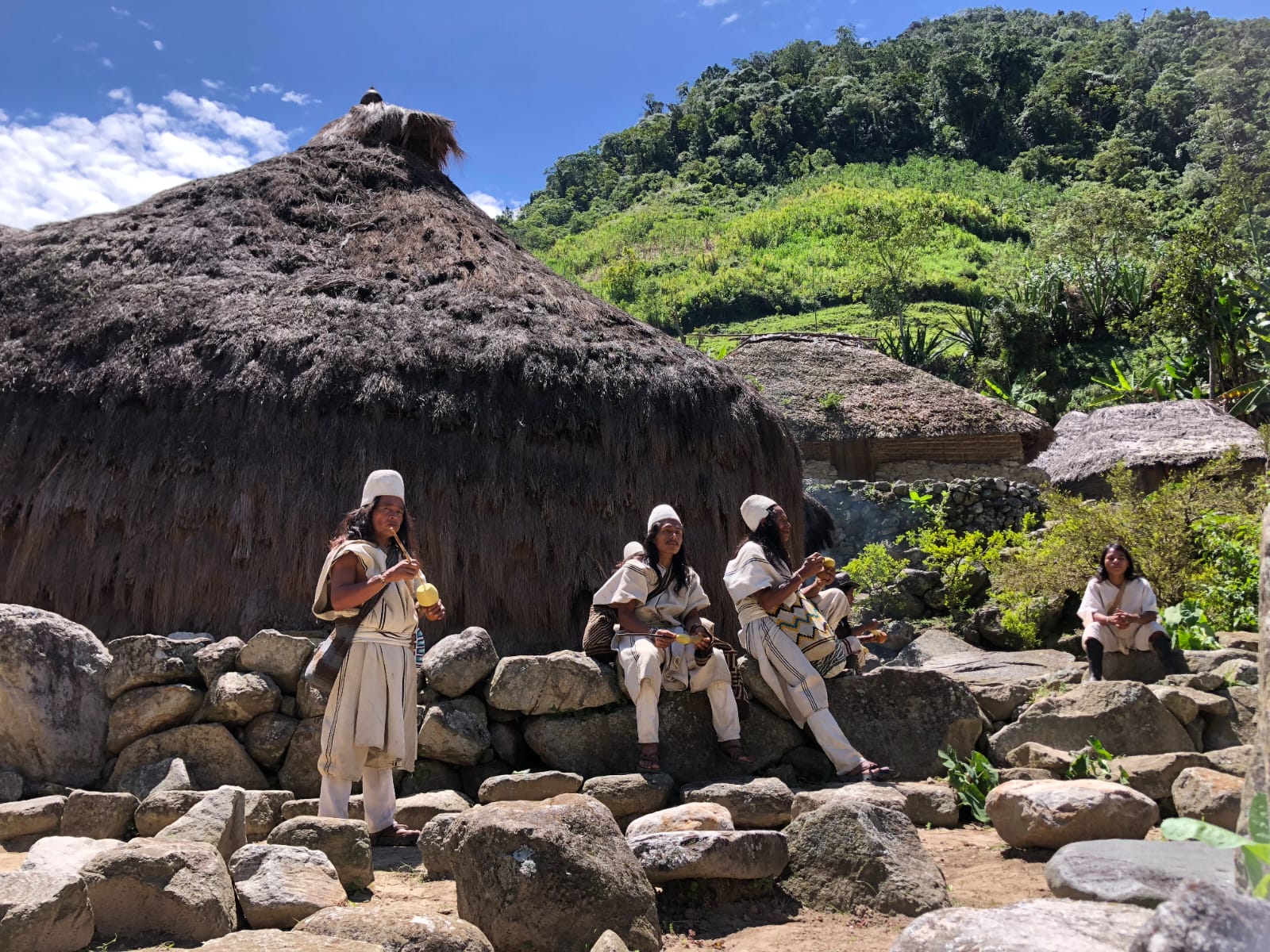
Deforestation for sugar projects in Merauke, Source: Yayasan Pusaka
Sugar is often synonymous with sweetness, enhancing and strengthening the flavor of food. But will the same outcome occur in Papua, where the land and its Indigenous Peoples are increasingly being eroded for the interests of the National Sugar and Bioethanol Development Project?
The land of Papua has long been a target for various parties seeking to control and exploit its resources—not only what is on the surface but also what lies beneath the earth. This often disregards the existence of the Indigenous Papuan People, who have managed and protected the land for generations.
One thing that continues to grow stronger over time is the government’s ambition to develop large-scale agricultural and plantation lands in Papua. Looking back, this ambitious project was initiated in 2006 when former President Susilo Bambang Yudhoyono declared the Merauke Integrated Rice Estate project in Merauke Regency, Papua Province. This involved allocating 3.2 million hectares of land to be converted into rice fields and plantations. The project ultimately failed and was replaced in 2010 by the Merauke Integrated Food and Energy Estate (MIFEE), which allocated 2.5 million hectares and added energy elements such as wood chips and palm oil to attract investors.
Under President Joko Widodo’s administration, the government re-declared the Food Estate project in Papua, with the aim of developing corn, rice fields, and sugarcane plantations across West Papua and South Papua Province. Additionally, through Presidential Decree Number 15 of 2024, concerning the Task Force for the Acceleration of Sugar and Bioethanol Self-Sufficiency in Merauke Regency, South Papua Province, the government has outlined the implementation of the National Sugar Self-Sufficiency and Bioethanol Provision Program. This mega-project is already underway, with 2 million hectares of land reserved for development, placing it within the National Strategic Project and Special Economic Zone scheme.
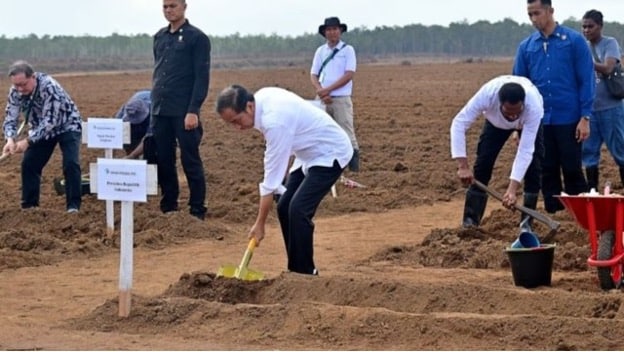
Symbolic opening ceremony by President Joko Widodo, Source: Media
The seriousness of this government initiative is evident, given that Indonesia is still a sugar-importing nation. In 2023, sugar imports totaled 5 million tons, with Thailand, India, Brazil, and Australia as the largest suppliers. Meanwhile, national sugar production stands at only 2.4 million tons per year, a figure that continues to decline. National sugar requirements in 2023 reached 3.2 million tons per year, meaning that imports are currently the only solution to this deficit.
This situation is also tied to Indonesia’s commitment to national energy independence, with a focus on new renewable energy sources. In 2025, Indonesia aims for a renewable energy mix of 23%, which will increase to 31% by 2030. This energy transition is expected to be fueled by biodiesel from palm oil and bioethanol from sugarcane.
These two major goals—achieving self-sufficiency in sugar production and advancing energy independence—are the driving forces behind the government’s push for this large-scale project. However, the government’s claims of eradicating poverty and overcoming the backwardness of Papuan society are often used to legitimize these development projects in the region.
This national-scale project places new pressure on South Papua, a province newly formed in 2022 after the expansion of Papua Province under Law Number 14 of 2022. South Papua consists of four regencies: Merauke, Boven Digoel, Mappi, and Asmat. As a new province, South Papua must prioritize development for its people. However, it is currently being forced to accommodate the mega Food Estate Project intended for rice and sugarcane cultivation.

Haji Isam, owner of Jholin Group (middle with hat and black glasses), guarded by armed military in Food Estate Location
| Name of Company | Concession (Ha) | Allocation |
| PT Global Papua Abadi | 30.777 | Sugar cane plantation, sugar mill and bioethanol |
| PT Andalan Manis Nusantara | 60.786 | Sugar cane plantation, sugar mill and bioethanol |
| PT Semesta Gula Nusantara | 66.056 | Sugar cane plantation, sugar mill and bioethanol |
| PT Borneo Citra Persada | 50.772 | Sugar cane plantation |
| PT Global Papua Makmur | 60.364 | Sugar cane plantation, sugar mill and bioethanol |
| PT Murni Nusantara Mandiri | 52.395 | Sugar cane plantation and sugar mill |
| PT Berkat Tebu Sejahtera | 60.342 | Sugar cane plantation |
| PT Agrindo Gula Nusantara | 60.679 | Sugar cane plantation |
| PT Sejahtera Gula Nusantara | 60.606 | Sugar cane plantation |
Several large companies, including WILMAR, KPN Corporation, Jhonlin, and First Resources, have also committed to partnering with the government through the PTPN Corp holding in this consortium.
Consent from Indigenous Peoples
Indigenous Peoples in South Papua are heavily dependent on forests. However, their land is increasingly threatened by the large-scale privatization and development projects carried out by the government and private sector. Indigenous Peoples claim they were not properly informed or consulted about the food estate plan, and many were shocked to learn of the land clearing operations. As customary landowners, they feel pressured to support the government’s grand plan. It appears they have no choice but to accept the loss of their land and forests, which have sustained them for generations.
Papuan Indigenous Peoples traditionally rely on sago as their primary food source, not rice. Forcing Papuan land to become a rice producer, by replacing forests and sago with rice fields, will disrupt the community’s wisdom, production and consumption patterns, and ultimately their traditions.
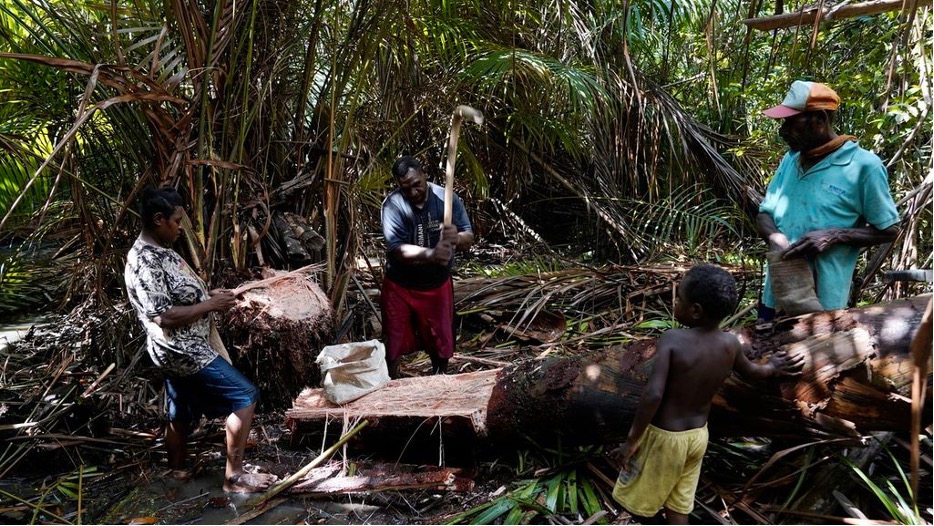
Harvesting Sago as collective efforts of Papuan Indigenous Peoples. Source: Kompas
This situation seems like an ongoing tragedy—Indigenous Peoples will watch from the sidelines as development unfolds, with no direct involvement as both actors and beneficiaries of this development. Meanwhile, the government and private sector continue to promise progress and prosperity, yet in reality, poverty, backwardness, and hunger persist in Papua. The loss of forests and customary land in Papua, and the uprooting of Indigenous Peoples from their culture and customs, seems inevitable, while prosperity remains a distant dream for them.
So, will this project bring sweet sugar or merely the bitter dregs of sugarcane for the indigenous Papuan people?

